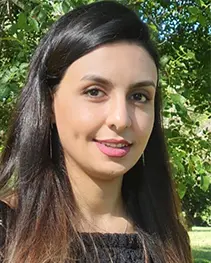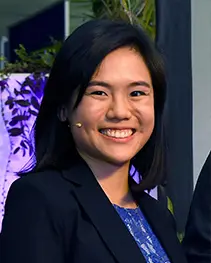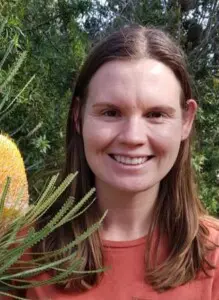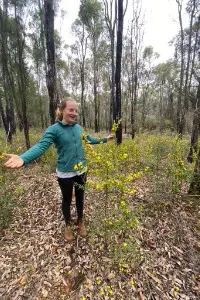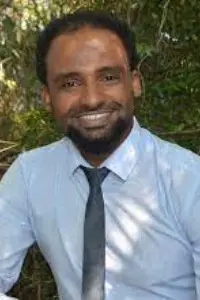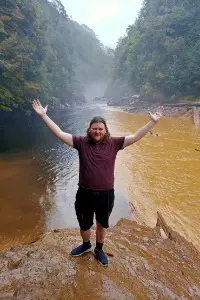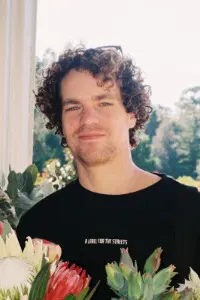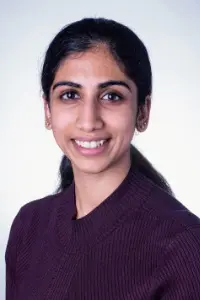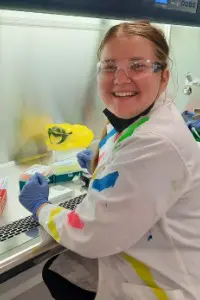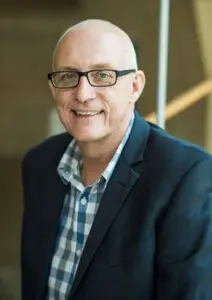
James Purtill
James is the Queensland Mine Rehabilitation Commissioner. He has held numerous Director-General roles in Queensland including the Environmental Protection Agency and Department of Natural Resources, Mines and Energy. He has worked in the private sector as an environmental scientist and senior manager. He is a Fellow of the Australia and New Zealand School of Government, a Fellow of the Institute of Public Administration Australia and a graduate of the Australian Institute of Company Directors.
In his private sector career, James was General Manager Sustainability for an ASX-listed energy company, Managing Director of a mine rehabilitation and environmental management company, and Director of an Australian subsidiary of an environmental consulting firm.
James holds a Bachelor of Science (Hons) degree from the University of New South Wales and a Master of Business Administration (Advanced) from the University of Queensland. His PhD topic is ‘More and better mine rehabilitation – combatting inertia and enabling innovation in Queensland’s coal mining industry’ and forms part of CRC TiME’s Regional Economic Development Program.
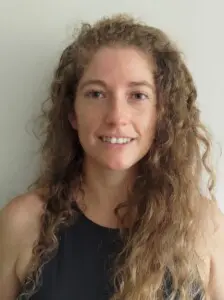
Carolina Clerc Castro
Carolina is a PhD student at the Sustainable Minerals Institute of The University of Queensland, where she works in collaboration with the Centre for Social Responsibility and the Centre for Water in the Minerals Industry. Supported by her environmental and energy background and multidisciplinary experience, Carolina is researching the integration of water and energy tradeoffs to address the social impacts of mine closure in remote communities through sustainable strategies.
The removal of key infrastructure that compromises critical access to water and energy for communities living near mining activities and the limited understanding of these challenges, are some of the main barriers to sustainable post-closure planning. Carolina aims to address this by developing a multidimensional decision-making framework to better inform integrated water and energy solutions aligned with post-mining development planning. The tool will help guide more effective closure strategies to support sustainable local economic development. She will work with a mine currently closing its operations in Chile to better understand the challenges, procedures, opportunities, and practicalities of a complex closure scenario involving multiple stakeholders.
Maryam Kahe
Maryam is a PhD candidate at The University of Queensland where her research focuses on the beneficial use of final voids for catchment-scale water management. There is a lack of research on how model design, in particular for modelling lake-groundwater interactions, affects model output uncertainty. Maryam’s project addresses this using idealised pit lake-groundwater systems. She constructs conceptual and numerical groundwater-pit lake models considering innovative approaches to representing the interface between pit lakes and groundwater systems. Case studies are used to evaluate models against observed pit lake and groundwater level data. Her project is aligned with the CRC TiME Data Integration, Forecasting, and Scale program. The project has a strong component of groundwater-surface water interactions modelling.
Amelia Lee Zhi Yi
Amelia is a PhD student at the Sustainable Minerals Institute of The University of Queensland. As a multi-disciplinary environmental scientist trained in the USA, Japan and Austria, Amelia’s researching the socio-technical paradigms between community, government and corporate stakeholders in the evaluation and testing of innovative post-closure land use options. In collaboration with Mining3 and Environmental Copper Recovery Pty Ltd, Amelia’s CRC TiME research aims to deepen understanding of the stakeholder landscape at the Kapunda Copper Mines to enhance stakeholder buy-in for implementation of bioleaching as a technology for sustainable mine repurposing. Amelia is undertaking her PhD remotely at The University of Lorraine, France and conducting a parallel study on stakeholder mapping for nickel agromining initiatives in Greece.
Babul Hossain
Babul is a PhD student at the University of Western Australia. Under the joint supervision of mine site owners Iluka Resources Limited, and UWA, Babul is exploring the potential value of utilising closed mine sites that have been revegetated, for carbon sequestration. The results of this project will benchmark the soil carbon sequestration potential of revegetated areas and monitor soil carbon dynamics; assess the effects of carbon storage on rehabilitated soil physical, chemical, and biological properties; and evaluate the effects of carbon storage on soil stability, soil salinity and microbial diversity and their potential impact on mine site rehabilitation success.
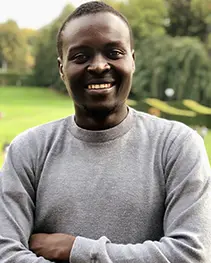 Benedictor Kemanga
Benedictor Kemanga
Benedictor is a PhD candidate at The University of Queensland where his research focusses on future climate change impacts on pit lake water balance. Understanding the pit lake mine water balance is critical for mine planning and operations as well as for post-closure regional sustainable development where it is important to determine whether a pit lake may become a liability in future due to climate change impacts. His work with CRC TiME will help the mining industry select pit lake hydrology models that minimise uncertainty in predicted water levels, identify key data that can be collected to reduce uncertainty and risk, and understand the relevance of climate change in the context of other elements of uncertainty and risk. A potential application of this research is establishing if pit lakes can be used for economic activities post closure.
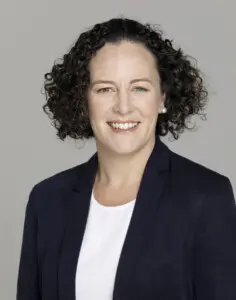 Liz Wall
Liz Wall
Liz is an independent consultant with more than 20 years of global experience assessing and addressing social and environmental impacts associated with large extractive sector projects in developing countries as well as having been a non-executive director for a number of mining companies. A New Zealander by birth, Liz has lived and worked in four continents and is devoted to helping communities in developing countries experience the positive benefits and minimise the adverse impacts of natural resource sector-led development. She believes that development requires a comprehension of the social, environmental and economic factors at play in every project. This has led her to undertake a mid-career PhD looking at the mining industry’s success in delivering a positive legacy for host communities at the time of mine closure, for which she has received a top-up research degree scholarship from CRC TiME.
Ebony Cowan
Ebony is a PhD candidate at Murdoch University and Kings Park Science. She investigates the responses of post-mine rehabilitated banksia woodland communities between the ages of three to 26 years to fire and fire related treatments. This knowledge is crucial to determining likely responses to disturbances, driving the sustainability of rehabilitation efforts.
Ebony is passionate about promoting biodiverse environments and understanding the ability of rehabilitation to bounce back following disturbances. Her work with CRC TiME will synthesise how resilience is used in industry and regulatory bodies, enabling a targeted effort towards promoting ecological resilience in rehabilitation.
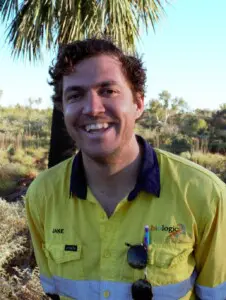 Jake Eckersley
Jake Eckersley
Jake is a PhD candidate at the University of Western Australia. His work as a researcher and as a botanical consultant has focused on riverine ecosystems in the Pilbara and understanding how changes to hydrology as a result of mining practices may alter ecological functioning. As part of his PhD, operating in collaboration with CRC TiME, Rio Tinto, BHP, Fortescue and the Department of Biodiversity, Conservation and Attractions, Jake is working to improve understanding of litterfall, which is a major component of nutrient recycling in semi-arid environments. Additionally, his research explores the utility of satellite remote sensing products in the creation of dynamic, regional scale models of ecological processes, such as vegetation carbon and nutrient transfers, to improve vegetation monitoring and rehabilitation outcomes in the Pilbara.
Savuti Henningsen
Savuti is a PhD student at The University of Western Australia, where she works in collaboration with Kings Park Science and Alcoa. Growing up in Botswana and moving to Perth in 2013, Savuti has been able to follow her passion and study environmental science. Currently, she is working on her thesis, ‘Ecophysiology of seed dormancy and germination of Hibbertia to inform seed propagation for ecological restoration’.
Her research aims to investigate the ecology of the Jarrah Forest Hibbertia and, from there, develop practical, scalable dormancy-break treatments for restoration. Within this research, Savuti seeks to identify the environmental drivers of dormancy loss in a range of Hibbertia species through studies of the efficacy of the laboratory-based dormancy pre-treatments in promoting seed germination, investigate inter-specific and intra-specific variation in dormancy depth and germination timing, and develop practical, scalable and ecologically informed seed dormancy break treatments for a range of Hibbertia species with complex germination requirements.
Fitsum S. Weldegiorgis
Specialising in socio-economic impacts; economic linkages and structural transformation; and resource governance, Fitsum has worked in his field for 15 years conducting applied and academic research in minerals and economic development. His inspiration comes from witnessing first-hand the significant, yet often missed potential of the extractive sector. He wants to influence policy and practice to enhance the livelihoods of the communities living in resource-rich countries.
His research explores how Australia and the resource-rich African countries could leverage economic linkages of the extractive sector for economic transformation. Within this broad research area his scholarship with us will specifically analyse if there are any mechanisms with which to manage coal mining for economic transformation while navigating policy approaches with respect to global energy transition. Specifically, his research project will aim to examine multi-stakeholder perspectives, including indigenous groups, around the expected impact of coal phase-out on the local economy, and attempt to generate evidence that could help stakeholders make informed decisions that will shape the sustainability of future economies.
Alex Hayes
Alex is a PhD student at Flinders University in South Australia. With a passion for physics and chemistry, his PhD, in collaboration with CRC TiME and MMG, is focussed on improving the understanding of Acid & Metalliferous Drainage (AMD) from active and legacy mine sites in Tasmania. AMD is a widespread, evolving research problem with a significant environmental impact. It is imperative that we address the errors of our past, to secure the sustainability of our planet.
Looking to make an impact on the Australian mining industry, Alex hopes that his PhD is the first step towards a successful career in a research field that he loves and will lead to an improved understanding of AMD on a local, and global scale.
Johan Wasserman
Johan is a PhD student at the Harry Butler Institute, Murdoch University, where he is part of the Iluka Chair in Vegetation Science and Biogeography team. His research is in collaboration with Iluka Resources and Alcoa Australia.
Johan’s current research, ‘Dark diversity in the context of species pools and functional pools: patterns, processes, and applications’, apply the concepts of species pools and dark diversity as monitoring tools to inform post-mining vegetation restoration.
The goal of this research is to use innovative analytical tools to provide a scientific basis for guiding ecological restoration practices towards creating resilient ecosystems. This research will show how these tools can be used to quantify the amount and identity of species and functional groups that can reasonably be expected to occur in a restored habitat; and how many/which species and groups are missing after restoration. By applying these tools across different vegetation types and temporal scales, new perspectives about vegetation recovery dynamics under different ecological context will be unveiled. These insights will have direct implications for monitoring restoration success, and decision-making and target setting in the restoration process.
Abdulraheem Anumah
Anumah is a PhD student at the Centre for Water in Minerals Industry of the Sustainable Minerals Institute (SMI) at the University of Queensland.
Anumah holds a Bachelor of Technology (Honours) in Industrial Chemistry from Modibbo Adama University of Technology, Nigeria. With sponsorship from the European Education and Culture Executive Agency (EACEA), Anumah received a joint master’s degree in Environmental Contamination and Toxicology from the University of Pau and Adour region, France, the University of Porto, Portugal, and the University of Basque Country Spain.
The focus of his PhD project is prediction of the chemical stability of tailings storage facilities given the constraints and limitations of the current industry-adopted kinetic testing methods. He aims to develop key design criteria for kinetic leaching tests to accurately predict the generation of acid and metalliferous drainage, including saline drainage, experimenting with a range of coal tailings from the Bowen Basin in Queensland.
Bhavya Nalagampalli Papudeshi
Bhavya is a PhD candidate at Flinders University, South Australia, where she works in Flinders Accelerator for Microbiome Exploration (FAME).
Her research is in bioinformatics, focused on building workflows to analyze and interpret the role of microbial communities in the restoration of mining sites. Microbial populations are critical, playing vital roles in both human and ecosystem health. At mining sites, microbial activity affects the biogeochemical processes, such as mineral oxidation and reduction, acid generation, and metal leaching.
Her work with the CRC TiME will develop a bioinformatic pipeline to rapidly analyze the microbial communities, via metagenomic sequencing. The tool will be used by researchers to identify acid generating potential of the microbes at mining sites and the effects of various restorative processes.
Haylee Smith
After completing my Bachelor of Science (Biotechnology), Haylee became an honours student in the Dinsdale lab. She was interested in Liz’s work and decided to take on the project looking at heavy metal contamination in mine site water outflow. This was an exciting opportunity for her as the project encompasses geomicrobiology, earth science and bioinformatics – all fields that spark my interest. Haylee loves spending time in the outdoors, getting food and and coffee, and op shopping! Haylee is really excited to publish my thesis and help inform greener mining practices for generations to come.
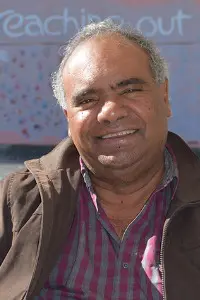
Rod Williams
Rod is a PhD Candidate at the School of Business, University of Queensland. A Bundjalung man (NSW) who has pursued a private sector career that extends across the industrial relations, financial, mining, small business, not for profit and university sectors. Founding Director and Owner of Gongan Consultancy Pty Ltd (1993) developing the Gongan Business Model which provides a cultural interface framework between western and Indigenous knowledge systems of the Community, Government and the Private Sector.
This Model captures Indigenous Knowledge philosophies and protocols; western business management concepts and systems to operate as a cross-cultural management tool that can bridge the cultural interface between Western and Aboriginal and Torres Strait Islander business knowledge and ways.
Rod’s PhD Topic: Gongan Business Model (Problem Solving Methodology) – Futuring the Australian Indigenous Estate. Seeking the opportunity to become part of a project with the CRC TiME’s socio-economic team and apply the Gongan problem-solving methodology that understands that cultural and spiritual connection to the land, caring for country and family, are central to conducting business in a respectful manner.

Eve McCallum
Eve is currently undertaking her studies at the University of Western Australia (UWA) through the Centre for Engineering Innovation: Agriculture and Ecological Restoration (CEI:AgER) and in collaboration with the Centre for Water and Spatial Science (CWSS). Her project is under the umbrella of the CRC TiME’s Australian Seed Scaling Initiative and is in collaboration with Alcoa Australia.
At University, Eve studied a Bachelor of Science majoring in Engineering Sciences and minoring in Archaeology. Following that she completed a Master of Professional Engineering (Mechanical Engineering) in 2015. On completion of this, she worked at Shell for 5.5 years as a static mechanical engineer, moving into reliability engineering during that time, she spent 14 months in South Korea at the shipyards for the final stages of construction and commissioning of Prelude FLNG. In 2021, Eve moved to BHP, working as a reliability engineer for mobile equipment at their South Flank site, FIFO work. At the start of 2023, she left to begin her PhD.
Eve’s research is looking to understand the formation and control of erosion in mine pit rehabilitation, with a focus on strip/contour mining operations. Why is erosion forming, what is causing it to initiate, and how can we control it? The aim is to understand how engineered slopes, soil profiles and soil topographies interact where erosion is forming and then how we can use that information to prevent erosion formation (e.g. are there treatments that can be done, do we need to change the topographies and soil profiles etc.).
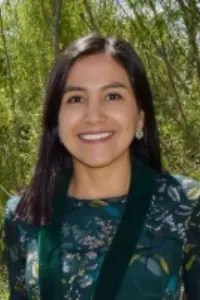
Consuelo Garcia Zavala
Consuelo is a PhD candidate at the Sustainable Minerals Institute of The University of Queensland. She is an engineer and holds a master’s degree in environmental management and previously worked in the field of socio-environmental management in the mining industry for several years in Peru and Australia. She recently moved to the research field to explore innovative solutions for sustainability challenges in mining.
Her PhD research project aims to understand the main socio-environmental challenges associated with lithium extraction in the Lithium Triangle of South America using a system-thinking approach; and to assess whether the existing socio-environmental management instruments are effective in addressing these challenges throughout the life of mine. Her PhD project aims to inform policies and practices that contribute to more responsible and sustainable extraction of lithium, minimising impacts on the environment and maximising value for surrounding communities and society.
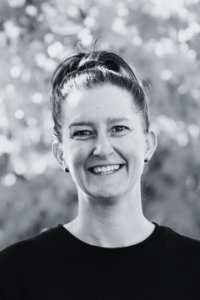
Amberley Laverick
Amberley is a PhD candidate at the University of Western Australia. After completing a Bachelor of Education at the University of Sydney, Amberley became involved in a range of education programs outside of the school system, where she developed and delivered community-based education programs in London, Nairobi and across Australia. Working with diverse stakeholders, including at-risk groups, non-profits, industry and the public sector, developed her interest in wider sociological issues such as power and agency. This led Amberley to complete a Master of Sustainable Development at Murdoch University, where she became interested in the dynamics between the mining industry, government, and mining communities.
Her PhD research investigates how the voices of Western Australian communities, which will experience mine closure, can be captured and catalogued to create pathways away from mining.

